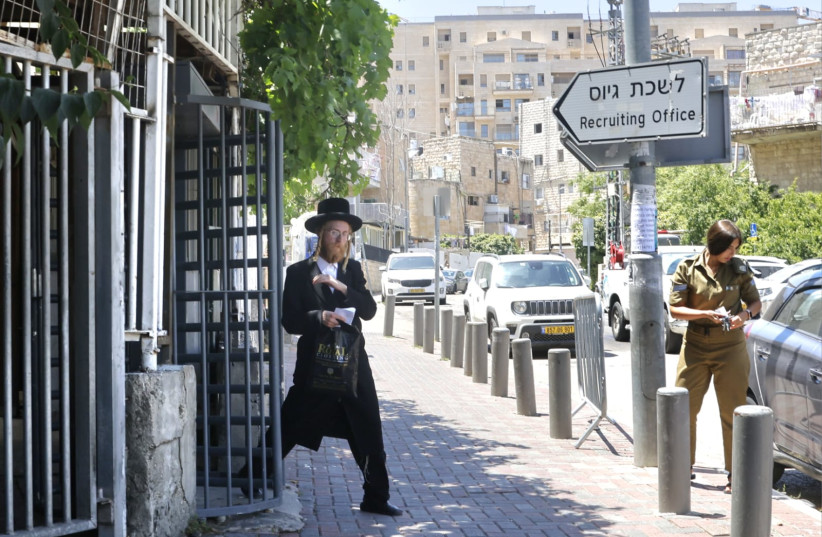United Torah Judaism chairman MK Yitzhak Goldknopf agreed on Monday to renege on conditioning his support for the 2025 budget on a bill to exempt yeshiva students from IDF service, in exchange for a bill to lift a significant financial sanction against those who evade the draft, according to a report by Channel 12.
The current law requires that the army draft all military-age ultra-Orthodox men, and those who do not enlist cannot receive certain financial subsidies. These include a subsidy of daycare centers for children in which the mother works and the father is a yeshiva student.
The haredi parties are willing to suffice with a bill that will enable this subsidy to continue as opposed to a complete IDF draft bill, according to the report.
UTJ said in a statement that in its party meeting on Monday, MK Yisrael Eichler presented a bill that would condition the daycare subsidies only on the employment status of the mother and not the status of both parents.
This would enable haredi families with working mothers to continue to receive subsidies, even if the father continues the yeshiva study despite the requirement to enlist in the IDF.
UTJ demanded in the statement that the coalition leadership promote the bill and push it through the Knesset “as quickly as possible.”

While a spokesperson for Goldknopf declined to confirm whether the Channel 12 report was correct, the support for the bill proposal by Eichler indicates that the haredi parties are willing to suffice with the removal of a significant financial sanction for those who do not enlist, thus de facto enabling them to continue their yeshiva studies.
Lapid speaks his mind
The haredi party leaders hope that the IDF’s slow pace of drafting haredim will continue without necessitating a new draft bill.
The legality of the bill is unclear, as the Attorney-General’s Office has said repeatedly that attempts to fund haredi yeshiva students who were required to enlist are illegal.
Opposition leader MK Yair Lapid said in a written statement in response, “The meaning of the bill by Eichler and his party is one: evading IDF service.”
Yisrael Beytenu chairman MK Avigdor Liberman wrote on X/Twitter that the proposal was “de-facto political bribery, at the expense of those who serve in the army.”
MK Oded Forer, also of Yisrael Beytenu, penned a letter calling on Attorney-General Gali Baharav-Miara to announce that the bill proposal was illegal.
The report came just hours after the Prime Minister’s Office said in a statement following the government’s weekly meeting that it was going to reject Goldknopf’s demand that the agreement over a haredi draft bill be reached before the budget debates begin.
Prime Minister Benjamin Netanyahu and Finance Minister Bezalel Smotrich said they expected the ministers to understand the “importance of the hour,” according to the statement.
A source in United Torah Judaism said the conditioning of support for the budget on an IDF draft bill was a demand by Goldknopf alone, and not by the party as a whole.
The Knesset on Monday marked the opening of the winter session after a nearly three-month hiatus.
The day began at 8 a.m. when a memorial book was placed in the Knesset building for MKs to sign and write in. Knesset committees met as usual during the morning. Between 12 to 2 p.m., most of the Knesset’s parties convened for party meetings and press conferences by party leaders. At 2:30 a memorial service was held in the Knesset courtyard to honor the fallen soldiers and civilians from the Swords of Iron war, as well as lay the cornerstone for a monument in their memory.
The day was marked by acts of protests of family members of hostages against the government, as 101 hostages remain in Hamas captivity. These included a number of women dressed like hostages with hands painted red and lashed together with zip ties, who stood side by side silently in a number of Knesset committees and in the hallway where the party meetings were being held.
During the memorial service, shouts amplified by megaphones were heard from protesters outside of the Knesset, including shouts by Yehuda Cohen, father of Nimrod Cohen, a soldier in Hamas captivity.
Cohen criticized the government for holding a memorial service while his son was still alive in Gaza and accused the government of not doing enough to save him.
